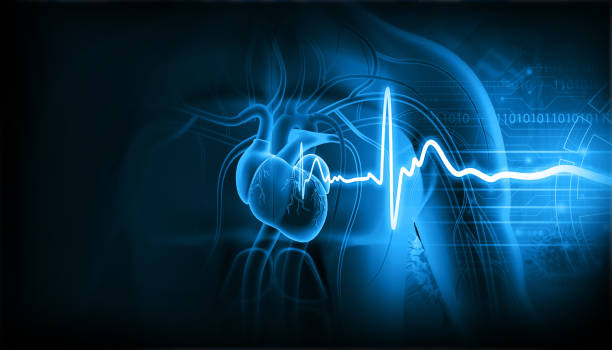Everything you need to know about Cardiology for lasting heart health
Wiki Article
Understanding the Significance of Cardiology in Modern Health Care Providers
Cardiology plays an essential role in modern health care, especially as cardiovascular disease remains to be the leading reason for death worldwide. Breakthroughs in diagnostics and therapy have actually changed patient care, enabling earlier interventions and improved results. Furthermore, the shift towards preventive cardiology empowers people to handle their wellness proactively. As technology proceeds to advance, the assimilation of ingenious options may even more redefine cardiology's impact on public health, motivating a more detailed assessment of emerging trends and their effects.The Frequency of Heart Problem and Its Effect On Public Health
Although heart problem continues to be the leading reason of death globally, its influence prolongs far past private patients to influence public health and wellness systems and economies. The high occurrence of heart disease positions a substantial pressure on health care sources, requiring increased funding for rehabilitation, therapy, and prevention programs. Public health and wellness campaigns must resolve threat aspects such as excessive weight, smoking, and sedentary way of lives, which contribute greatly to the climbing incidence of heart conditions.Moreover, the economic concern connected with heart condition is enormous, including not only straight clinical expenses but also indirect expenses connected to lost productivity and premature mortality. Areas deal with obstacles in handling these prices, commonly leading to differences in medical care access and outcomes. As the population ages and lifestyle-related risks proceed to intensify, the necessity for reliable cardiology interventions ends up being critical. Subsequently, addressing heart condition is not just a matter of specific health however additionally a crucial public wellness priority.Advancements in Cardiac Diagnostics and Imaging Techniques
Current developments in heart diagnostics and imaging techniques have actually transformed the area of cardiology, improving the ability to keep track of and discover cardiovascular disease. Methods such as cardiac MRI, CT angiography, and echocardiography have actually come to be increasingly innovative, supplying in-depth photos of cardiac structures and functions. These techniques permit the very early identification of problems like coronary artery disease, heart failing, and valvular disorders.Moreover, innovations in non-invasive diagnostics, such as wearable technology and remote tracking devices, have actually empowered clients and doctor. These tools promote real-time tracking of heart rhythms and various other important indicators, leading to prompt treatments. Additionally, artificial knowledge is being incorporated right into imaging evaluation, boosting precision and efficiency in diagnosis.Developments in Treatment Options for Heart Issues
Recent improvements in cardiology have actually resulted in significant developments in therapy options for heart conditions. These consist of sophisticated medical techniques that improve procedural outcomes and arising drugs that provide brand-new avenues for treatment. As the field advances, these innovations play a crucial duty in improving person treatment and results.Advanced Surgical Techniques
Technologies in medical strategies have actually transformed the landscape of cardiology, offering brand-new wish for people with heart disease. Minimally intrusive procedures, such as catheter-based interventions, have actually significantly lowered recovery times and hospital keeps. Strategies like robotic-assisted surgical treatment enhance accuracy, allowing specialists to browse complicated physiological structures with greater precision. Furthermore, developments in imaging innovation promote real-time visualization during treatments, boosting outcomes. Transcatheter aortic shutoff substitute (TAVR) exhibits an innovation in dealing with aortic constriction, allowing valve replacement without open-heart surgery. Additionally, hybrid strategies that incorporate catheter-based and medical techniques offer tailored solutions for different cardiac problems. These advanced surgical strategies not just improve client safety yet likewise expand treatment options, emphasizing the essential function of development in modern-day cardiology methods.Emerging Therapies and drugs
As the landscape of cardiology proceeds to advance, arising medications and therapies play a critical function in improving therapy choices for heart disease. Advancements such as unique anticoagulants and advanced lipid-lowering agents have changed the administration of heart diseases, significantly minimizing person morbidity and death. Additionally, the development of genetics therapies and regenerative medication uses appealing opportunities for dealing with conditions previously deemed irreversible. Scientific tests are consistently disclosing the efficacy of these therapies, pushing the borders of traditional treatments. The combination of digital health innovations helps with personalized medication, enabling for tailored treatment plans based on genetic and way of life variables. Collectively, these developments underscore the dynamic nature of cardiology, boosting person outcomes and redefining criteria of treatment in modern health care.The Duty of Preventive Cardiology in Patient Care
Preventive cardiology plays a vital role in client care by concentrating on the recognition of threat factors that add to cardiovascular disease. Through way of living modification approaches and very early detection strategies, doctor can effectively lower the occurrence of cardiovascular events - Cardiology care. This aggressive method not just boosts person results but additionally promotes lasting healthDanger Element Recognition
While heart diseases remain a leading reason for morbidity and death worldwide, reliable danger factor identification acts as a foundation of preventive cardiology. Recognizing danger variables such as high blood pressure, family members, diabetes, and hyperlipidemia history is important for early intervention. Medical care professionals utilize various evaluating techniques to evaluate these aspects, permitting customized preventative actions. In addition, understanding a person's way of living options, such as cigarette smoking and physical lack of exercise, better informs risk assessments. This complete evaluation allows medical professionals to establish personalized care strategies targeted at mitigating risks. By prioritizing risk factor recognition, healthcare systems can enhance person outcomes and minimize the total problem of cardiovascular diseases, inevitably adding to enhanced public health techniques and resource appropriation.Way Of Living Adjustment Strategies
A plethora of research studies highlights the essential function of way of life alteration strategies in lowering heart disease danger. These methods include dietary modifications, increased exercise, cigarette smoking cessation, and weight monitoring. By adopting a heart-healthy diet rich in fruits, veggies, entire grains, and lean healthy proteins, people can decrease cholesterol degrees and high blood pressure. Regular exercise enhances the heart and enhances general cardio health and wellness. In addition, giving up smoking cigarettes greatly reduces the risk of cardiovascular disease and enhances recovery rates for those with status quo. Weight monitoring further contributes to cardio health and wellness by alleviating other danger elements such as diabetic issues and hypertension. Applying these way of living transforms not Look At This just promotes individual well-being yet additionally acts as a cornerstone of preventive cardiology in patient treatment.Very Early Detection Techniques
Way of living alterations considerably add to decreasing heart disease dangers, however they are most effective when coupled with very early detection methods. Precautionary cardiology emphasizes the value of recognizing prospective heart issues prior to they escalate right into major conditions. Strategies such as blood pressure surveillance, cholesterol testing, and advanced imaging modern technologies like echocardiograms play vital roles in assessing cardio health and wellness. Biomarkers and genetic screening also improve the precision of very early detection, permitting customized preventive methods. Regular heart risk examinations empower doctor to interfere proactively, possibly protecting against heart strikes and strokes (Cardiology Jupiter). By integrating these early discovery approaches right into regular treatment, individuals can profit from timely way of living interventions and targeted therapies, inevitably enhancing end results and enhancing high quality of lifeIntegrating Modern Technology Into Cardiology Practices
As developments in innovation proceed to reshape numerous fields, the combination of ingenious devices and systems right into cardiology practices has ended up being essential for boosting client care and results. Telemedicine systems allow cardiologists to monitor clients Cardiology remotely, enhancing accessibility to care while decreasing the concern on health care centers. Wearable tools, such as smartwatches, make it possible for continual heart price monitoring, alerting both patients and medical professionals to prospective problems in real-time. Furthermore, man-made intelligence (AI) is being used to examine huge amounts of cardiac information, aiding in very early medical diagnosis and tailored treatment plans. Advanced imaging techniques, including 3D echocardiography, enhance visualization of heart frameworks, leading to more precise treatments. Electronic health documents (EHRs) simplify patient information management, ensuring that cardiologists have prompt accessibility to important data. Together, these technical advancements are transforming cardiology, advertising positive management and improved wellness results for clients with cardio problems.The Importance of Individual Education and Involvement
Client education and learning and engagement play a crucial function in the monitoring of cardiovascular health and wellness. By gearing up clients with understanding about their problems, therapy alternatives, and way of life changes, doctor equip people to take an active role in their treatment. This positive strategy can result in improved adherence to prescribed medicines, nutritional changes, and exercise routines, inevitably decreasing the threat of complications.Engagement also promotes a solid patient-provider partnership, encouraging open interaction and depend on. When individuals really feel informed and involved, they are most likely to voice problems and ask questions, which can result in much better professional results. Additionally, academic sources, such as workshops or electronic systems, can boost understanding and advertise self-management strategies. In general, prioritizing person education and engagement is vital for improving cardio health and wellness, enhancing top quality of life, and lowering medical care prices connected with heart diseases.Future Fads in Cardiology and Their Possible Influence

Often Asked Concerns
What Lifestyle Changes Can Decrease Cardiovascular Disease Threat?
The existing question addresses way of living changes that can greatly reduce heart illness danger. Cardiology Jupiter. Adopting a well balanced diet regimen, participating in normal physical activity, preserving a healthy and balanced weight, taking care of stress and anxiety, and preventing cigarette can especially enhance cardiovascular health and wellnessExactly How Can I Recognize Early Indicators of Heart Problems?
Recognizing very early signs of heart problems entails monitoring signs and symptoms such as chest discomfort, lack of breath, tiredness, and irregular heartbeat. Timely awareness of these signs can prompt essential clinical analysis and intervention for much better results.What Are the Differences In Between Cardiologists and Cardiac Surgeons?
The distinctions between cardiologists and heart surgeons hinge on their roles; cardiologists primarily manage and identify heart problems through non-invasive techniques, while heart specialists carry out procedures to remedy architectural heart issues. Each plays a crucial, distinct role.
How Typically Should I Obtain My Heart Health And Wellness Checked?
The frequency of heart health and wellness checks differs based upon private threat factors. Generally, grownups must undergo assessments each to 2 years, while those with existing conditions might call for more frequent evaluations as advised by healthcare specialists.What Duty Does Genes Play in Heart Problem Threat?
Genes substantially affects heart problem threat, with domestic patterns suggesting acquired conditions. Particular genetics can incline individuals to hypertension, cholesterol concerns, and various other cardio troubles, highlighting the significance of hereditary testing in examining heart health and wellness. Heart condition continues to be the leading cause of death around the world, its impact expands far beyond individual people to influence public health systems and economic climates. Public health and wellness campaigns have see this here to deal with risk factors such as excessive weight, smoking, and less active way of livings, which contribute substantially to the rising occurrence of heart conditions.Moreover, the economic burden associated with heart illness is enormous, encompassing not just direct clinical expenses yet additionally indirect costs associated to shed efficiency and early death. Preventative cardiology plays a vital function in client care by concentrating on the recognition of danger elements that add to heart disease. Synthetic intelligence (AI) and equipment discovering are boosting diagnostics and person tracking, enabling early discovery of heart illness. The differences in between cardiologists and cardiac doctors lie in their roles; cardiologists largely handle and detect heart problems with non-invasive techniques, while cardiac cosmetic surgeons perform surgical treatments to deal with structural heart concerns.Report this wiki page